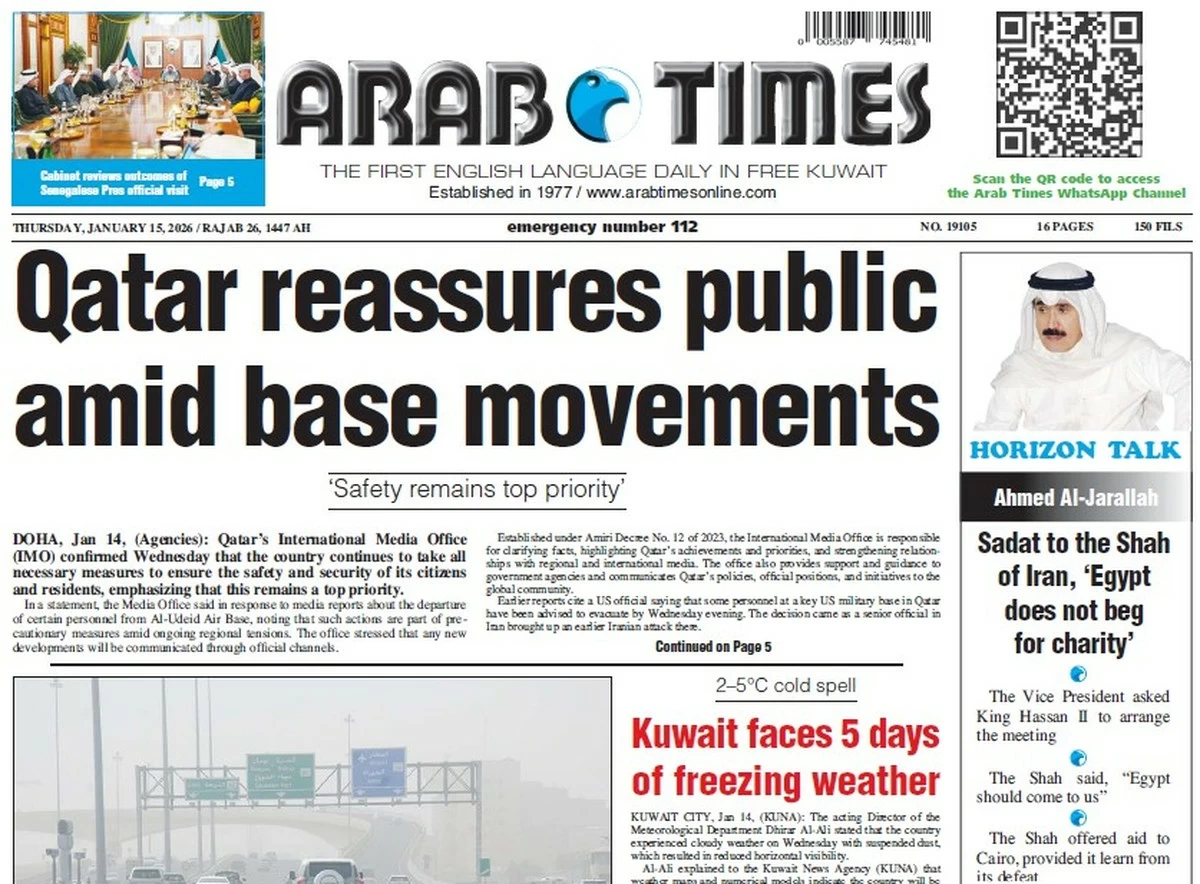06/10/2025
06/10/2025

KUWAIT CITY, Oct 6: The podcast revolution is reshaping the global media landscape, drawing in new audiences, offering vast possibilities, and challenging the long-standing dominance of traditional platforms such as television, radio, and print journalism.
What began as a niche audio format in the early 2000s has evolved into a powerful communication tool with a global footprint. The term “podcast”—a combination of “iPod” and “broadcast”—reflects its digital origins, relying on simple production tools like microphones, interview setups, recording software, and distribution through websites and streaming platforms.
Today, podcasting is more than just a trend. It’s a media force. According to Germany-based analytics firm Statista, there are currently over 3.5 million podcasts worldwide, offering 175 million episodes daily. That number is expected to climb further, with 600 million global podcast listeners projected by 2026, underscoring the format’s growing influence.
From an economic perspective, podcasts are also creating lucrative opportunities. Statista reported that advertising revenues reached USD 4.46 billion in 2025, with a projected annual growth rate of 4.7 percent, potentially reaching USD 5.36 billion by 2029. The platform’s reach and audience engagement continue to attract advertisers eager to tap into this expanding market.
Podcasts are not only reshaping media economics but are also leaving a mark on global politics. Edison Research, a U.S.-based data and media analysis company, characterized the 2024 U.S. presidential election as the “podcast election.” Current U.S. President Donald Trump appeared on 20 podcasts between July 2024 and election day, reaching 23 million weekly listeners, while his rival, former Vice President Kamala Harris, participated in just eight, drawing 6.4 million listeners. Edison stated that podcasts offered candidates an unprecedented platform for direct communication with voters, helping redefine modern election campaigns.
The flexibility and intimacy of podcasts—often recorded in informal, comfortable settings—allow for deeper conversations and broader audience connection. Unlike traditional TV or radio interviews constrained by strict formats, podcast viewers can choose their own time and place to listen, giving them more control and access to long-form content.
Locally, the impact of podcasting is clearly visible in Kuwait. Speaking to Kuwait News Agency (KUNA), Faisal Al-Aqel, CEO of Sard Group and host of the Kuwaiti podcast Bidon Waraq (Without Paper), emphasized how podcasts have made it easier for content creators to reach audiences. “Before podcasts, people got their information through conventional outlets like radio and TV,” he said. “Now, digital platforms offer greater access and freedom,” Al-Aqel added, that podcast topics are not limited or defined, allowing for unrestricted conversations that cover everything from politics to culture. He sees this both as an opportunity and a challenge, depending on how content is curated.
On the business side, Khalil Hayat, CEO and founder of Hayat Vision Advertising and Electronic Marketing, noted that podcast marketing strategies differ significantly from those in traditional media. “Product promotion must align with the podcast’s theme and audience,” he explained. “Smooth integration is key—ads should be introduced naturally during conversations without disrupting the flow.” Hayat highlighted methods such as direct sponsorship, host-read messages, and “streamlined advertising” where sponsor products are featured casually—through props like branded mugs or tech devices during recordings. He emphasized that advertisers can repurpose podcast segments across digital platforms, enabling a multi-platform investment ecosystem that builds long-term brand value beyond the original broadcast.
From an academic lens, Dr. Mohammad Al-Otaibi, Professor of Media at Kuwait University, affirmed that podcasts have moved beyond entertainment to become a critical medium of influence. “Podcasts offer freedom from time and space constraints,” he said. “They enable authentic interaction between hosts and audiences, and they will increasingly become a primary source of information and public engagement.” Dr. Al-Otaibi added that the podcast format also frees presenters from traditional editorial restrictions. This shift allows for more open, opinionated, and personalized content, helping podcasters not only report events but also shape discourse and public sentiment.
He further observed that podcasts serve as a bridge between content creators and their audiences, facilitating direct communication without traditional gatekeepers, and building loyal listener communities that often follow podcasters as thought leaders.
Moreover, the growing popularity of extended podcast interviews—often longer than traditional talk shows—offers guests the time and space to thoroughly articulate their views. This depth of conversation helps audiences engage more deeply with issues, making podcasting a trusted source of context-rich content.
Ultimately, the podcasting phenomenon has not only challenged the status quo of traditional media but has also carved out a unique space for creativity, investment, and influence in the digital age. With technology continuing to evolve and global listener numbers rising, podcasting is positioned to become one of the main pillars of modern media, shaping the future of how information is shared, consumed, and monetized.


